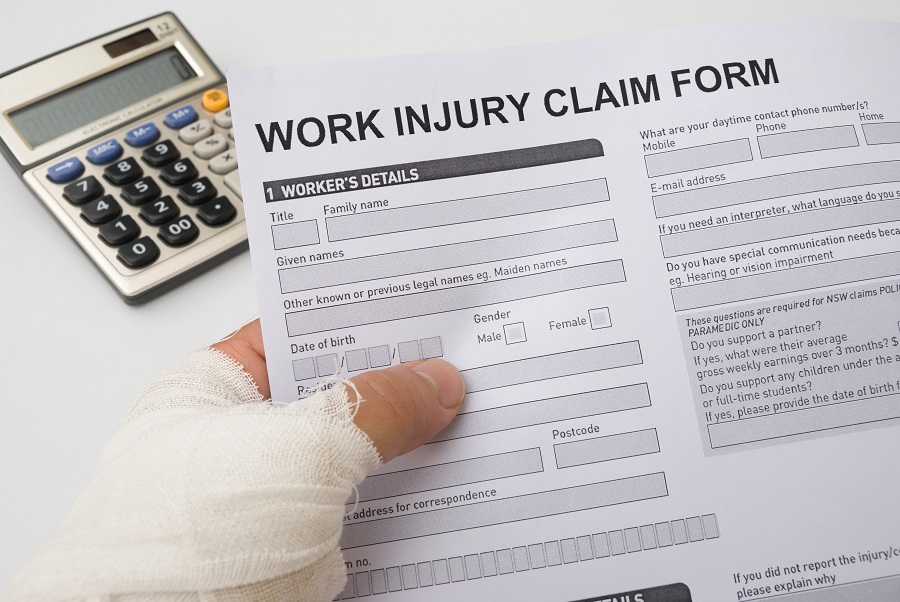Why a Business needs Workers Compensation Insurance and how it can benefit
Workers Compensation Insurance is required by law in 48 out of 50 states. For this reason, it is usually where business owners start their insurance buying process. Each state has exclusions for some businesses depending upon the size, industry, and scope of the work the business does. Even if you are not required to carry this coverage, it is almost certainly an insurance policy your business should secure to properly protect your business. Talking with an Independent Insurance Agent can help you determine how to best insure your business from the risks it faces related to injured employees.
Workers Compensation History
The Workers Compensation System in the United States developed over the first half of the 20th century. Wisconsin was the first state to adopt such legislation in 1911 and Mississippi was the last state to adopt a formal workers’ compensation program in 1948. Prior to workers compensation legislation, employees who were injured on the job had no formal system to compensate them for their injuries. Injured employees only form of recourse was to sue their employer. Each state has a different way of administering the Workers Compensation System within its state, but they each provide employees with medical costs and some lost wages, while also providing employers with the peace of mind that they cannot be sued for injuries that occur as a part of normal business operations. Because of this mutually beneficial system, workers compensation is frequently referred to as the ‘exclusive remedy’.
Workers Compensation as the ‘Exclusive Remedy’
The ‘Exclusive Remedy’ comes from the mutually beneficial system for helping injured employees and businesses deal with the costs associated with employees being injured on the job. When an employer purchases workers comp coverage they cannot be sued for injuries that occur as a part of normal business operations. They can be sued under some narrow circumstances where the employer was willfully negligent or intended to cause the injury. The injured employee gives up the right to sue, but recoups some lost wages (60% in most states) and medical costs that result from the injury. The idea behind the exclusive remedy is to provide some compromise between both employee and employer.

Statistics about Workers Compensation Insurance
In 2015, the last year for accurate data, workers compensation systems in the United States covered more than 135 million workers throughout the country at a cost to employers of $61.9 billion. According to the Bureau of Labor and Statistics, Commercial Cleaning and Janitorial Services Companies employ more than 2 million employees each year. Employers pay anywhere from 75 cents to $2.74 per $100 in employees’ wages. This amounts to an enormous cost to the businesses in this industry, but that cost is offset by the peace of mind business owners get from not having to suffer the burden of medical costs when employee is injured on the job.
Why your business needs Workers Compensation Insurance
Most businesses are not financially secure enough to withstand the burden of providing medical costs and lost wages to employees when they are injured on the job. Workers Compensation Premium may seem burdensome to your business. It seems even more of a burden when the policy is not used frequently, but the one time your business experiences a serious injury to an employee can cover the cost of several years if not decades of insurance premium.
Accidents happen, even to the most safe companies. If a business sticks around long enough they are going to experience a situation where they are going to have an employee injured and need to collect workers comp benefits. Unless your business is extremely financially secure, purchasing coverage is always the better financial decision.

Additional Workers Compensation Information
Monopolistic States in the Workers Compensation System
The Monopolistic States include North Dakota, Ohio, Washington, Wyoming, as well as Puerto Rico, and the U.S. Virgin Islands. What being a monopolistic state means is that the state workers’ compensation system does not recognize workers comp coverage purchased in another state. If a business operates in multiple states, and one of those states is a monopolistic state, the business much purchase additional coverage for their employees while they are doing business within the jurisdiction of that state. This comes in to play for trucking companies and businesses in states that border a monopolistic state. Partnering with a national independent insurance agency can help you maneuver the tricky landscape of operating in a monopolistic state.
States with Workers Compensation Opt-out Provsions
Two states currently offer some businesses the ability to opt-out of workers compensation system if they meet certain criteria. Those states are Oklahoma and Texas. Texas has had an opt out provision in place for several years. Oklahoma implemented a limited opt out provision in 2013. Texas requires businesses to apply for and if they meet certain criteria they can opt out of workers compensation coverage altogether. The businesses are required to meet a bare minimum amount of coverage that is similar to what is provided within the workers comp system. The way Texas has implemented the opt out provision allows large companies with strong safety records to opt out if they are financially secure. The way Oklahoma is implementing this provision is quite different and does not require companies who opt out to meet as much criteria or to provide as many benefits if they are approved to opt out. In addition to the opt out provision in Oklahoma, the system was changed in 2013 to the Oklahoma System. One of the main changes impacting the Oklahoma Workers Compensation System is that all injuries must be reported within 24 hours of the injury or they are not covered. In this system, if an employee is injures their back on Friday afternoon and reports it to their boss first thing Monday morning, they are not covered under the workers compensation system in the state of Oklahoma.


